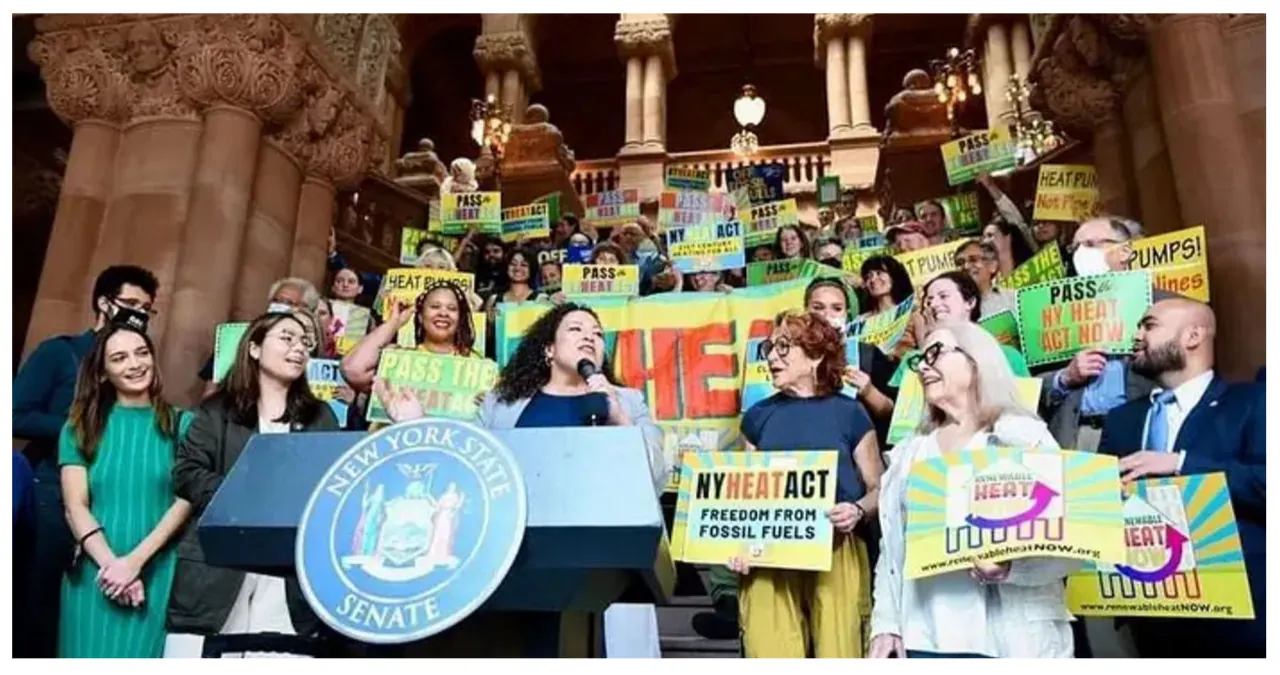Advocates announced a new tool that allows residents to calculate how much they could save on utility bills, stating that state legislation mandating a shift away from fossil fuels and capping energy costs could potentially save the poorest New Yorkers an average of $75 per month.
The proposed NY Heat Act in Albany aims to ensure that utility bills for low-to-middle-income households do not exceed 6% of their total wages. Additionally, this legislation would encourage the state’s utility regulator to reduce the size and, in certain situations, decommission gas plants and pipelines.
Climate policy nonprofits Spring Street Climate Fund and Win Climate have developed a NY Heat Act calculator to support their efforts in promoting the legislation. Through this calculator, residents can select their districts and provide details such as their income and average monthly bills. By doing so, they can determine the potential savings they could enjoy if the NY Heat Act is implemented.
The bill received strong support in the state Senate, passing with a vote of 39-23 in June. However, it did not advance in the Assembly. Governor Kathy Hochul has incorporated certain aspects of the bill into her latest budget proposal, aiming to halt the expansion of utility infrastructure that often leads to increased utility costs.
State Assemblymember Yudelka Tapia, who represents parts of the Bronx, emphasizes that food insecurity means having enough food to sustain two or three meals per week. She highlights that this issue is not only an economic concern but also an environmental one. Tapia points out that many communities lack awareness and understanding of the environmental impact of food insecurity, as they primarily focus on the economic aspect.
The median annual income in Tapia’s 86th Assembly District falls just below half of the citywide average of $81,386. According to the state, 40% of households in her district are considered energy-burdened, which means they spend more than 6% of their total earnings on utility bills.
Residents in Tapia’s district typically receive energy bills amounting to $197. According to the advocates’ calculations, the implementation of the Heat Act would result in savings of approximately $112 for these residents.
Shay O’Reilly, campaign manager at the Spring Street Climate Fund, expressed that the cost-of-living crisis is affecting everyone. She believes that by sharing this information, they can effectively convey the story and help New Yorkers comprehend the situation.
National Grid did not respond to our inquiry. According to the gas utility giant, the NY Heat Act is considered premature due to ongoing discussions about striking a balance between the state’s zero-emissions objectives and ensuring utility reliability.
The calculator site includes a map that displays the average household savings achieved through the NY Heat Act. It also indicates the percentage of residents who are considered “burdened” by their utility bills.
“The data clearly indicates that the implementation of NY Heat would have a substantial impact on New York State’s energy affordability crisis,” stated Juan-Pablo Velez, the executive director of Win Climate. He further emphasized, “More than a third of Bronx residents currently struggle with high energy costs, and with the introduction of NY Heat, their bills would be reduced by an average of 50%.”
Read More:
Georgia Woman Files Lawsuit Against Tennessee After Her Children Are Taken During Traffic Stop

